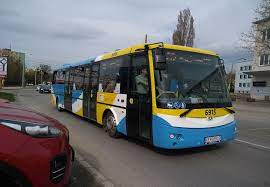Project “Purchase of high-environmental low-floor public transport buses in city transport”
Residents of Košice in east Slovakia are enjoying better public transport thanks to an EU-funded project allowing the city to purchase of a fleet of nine, low-floor, 18 m buses and nine electric buses. All are used on popular lines across Košice and its suburbs. The new buses have improved passenger experience, increased reliability of services and have helped to reduce transport costs and emissions.
The new bus fleet provides the city and people of Kosice with a number of benefits, including increased reliability of service and improved levels of passenger comfort.
The operation of the new buses helps to reverse the decline in public transport use in the Košice region. People have been put off by a lack of passenger comfort and poor reliability, both in terms of services that have been cancelled or running late due to breakdowns. The operator, Transport Company of Košice city estimates these problems have reduced passenger numbers by 11 million in recent years.
In addition to reducing breakdown and failure rates, the new buses bring multiple benefits. They comply with the strictest Euro VI emission standards and thus reduce pollution from public transport. The modern design reduces noise emissions compared with older buses.
One key goal is to encourage more people to use public transport. The new buses are more accessible to all, including people living with disabilities. They have a high standard of interior comfort and are air conditioned. The driver benefits from an improved and more comfortable cab design.
As more people begin to use the new buses, the transport company will benefit from increased sales. The new fleet’s greater reliability brings down operation and maintenance costs.
The Implementation of this project helps the city to fulfil its goal of improving public transport services and complements other initiatives, including the renewal of the local tram fleet and the introduction of a contactless payment system.
The total cost of the project is EUR 6 735 916, with the EU’s European Regional Development Fund contributing EUR 5 725 528.
More information on the project is available here.
